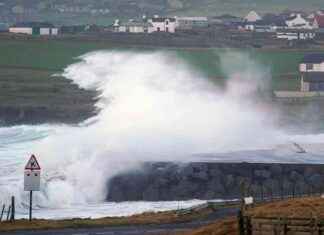Winter Fuel Cost Analysis: Anas Sarwar’s Potential Impact on Bute House
As the debate over winter fuel payments continues to simmer in political circles, the focus shifts to the potential impact on Scottish Labour’s chances of winning power at Holyrood. With Sir Keir Starmer’s government implementing cuts to winter fuel payments, the question arises whether this move could scupper Scottish Labour’s electoral prospects.
The SNP has been quick to capitalize on this issue, with their nine MPs voting against the scrapping of the universal benefit that has provided older people with an allowance of up to £300 annually to help heat their homes during the coldest months since 1997. This move has put pressure on the new contingent of Labour MPs to defy their party’s leadership and join the fight to reverse the decision to means test the benefit.
Stephen Flynn, along with his colleagues at Westminster, continues to push for the reinstatement of the universal benefit, highlighting the impact of the cut on nearly 10 million people in England and Wales, as well as around 900,000 individuals in Scotland. The potential loss of this benefit not only affects those directly receiving it but also has a ripple effect on their families and communities.
The emotive nature of this issue cannot be understated, as demonstrated by Tory MP Caroline Johnson’s poignant speech during the debate. Highlighting the life-threatening consequences of cold weather on the elderly, Johnson’s words struck a chord with many in the chamber and beyond.
Scotland’s unique climate adds another layer to the debate, with MPs from both the SNP and the Tories emphasizing the harsh winters experienced in the region. This argument not only portrays the policy as anti-pensioner but also anti-Scottish, appealing to the sentiment of protecting vulnerable individuals in colder climates.
Despite the efforts of the SNP and Tory MPs, Labour ultimately stood by Sir Keir Starmer’s plan to introduce means testing for winter fuel payments. This decision has raised questions about Labour’s consistency in moving away from universal benefits, especially as their counterparts in Holyrood criticized the SNP for not implementing free school meals for all P6 and P7 pupils.
As the Holyrood election approaches, Labour faces the challenge of striking a balance between opposing the incumbent government and presenting a credible alternative. Professor James Mitchell warns against appearing too opportunistic and oppositional, urging Labour to consider the challenges they may inherit if they come to power.
The controversy surrounding the winter fuel payments cut has the potential to sway voters, with communications consultant Andy Maciver acknowledging the risk of Labour losing votes over this issue. However, with the next election still a few years away, the impact of this decision may fade in voters’ minds as other pressing issues come to the forefront.
Subheadings:
The SNP’s Opposition to Winter Fuel Payment Cuts
Labour’s Stance on Means Testing and Universal Benefits
The Implications for the Holyrood Election
The debate over winter fuel payments and means testing has captured the attention of politicians and the public alike, raising critical questions about social welfare policies and the impact on vulnerable populations. As the political landscape continues to evolve, the decisions made on this issue could have far-reaching consequences for the upcoming Holyrood election and beyond.
































